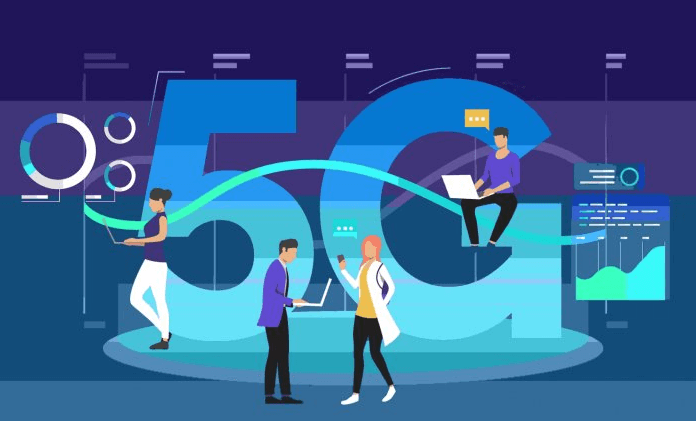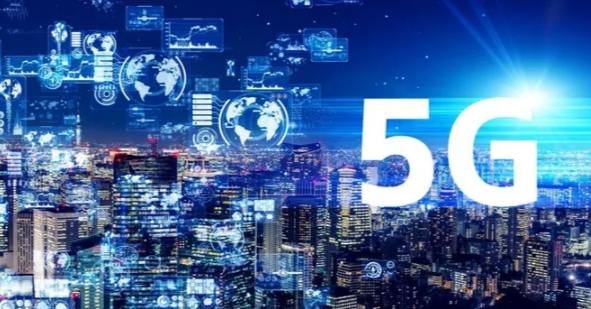What are the implications of the widespread adoption of 5G technology for businesses and consumers in the USA?

Introduction
The arrival of 5G technology marks a significant milestone in the evolution of wireless communications. As the fifth generation of mobile networks, 5G promises to revolutionize both business operations and consumer experiences in the USA. This article delves into the myriad implications of 5G adoption, exploring its potential to transform industries, enhance connectivity, and drive economic growth.
The Basics of 5G Technology
5G technology represents the next generation of wireless communication, offering higher speeds, lower latency, and greater capacity compared to its predecessors. It operates on a broader spectrum and uses advanced technologies like Massive MIMO (Multiple Input Multiple Output) and beamforming to deliver superior performance.
Enhanced Connectivity and Speed
One of the most notable benefits of 5G is its enhanced connectivity and speed. With download speeds up to 100 times faster than 4G, 5G enables seamless streaming, quicker downloads, and more reliable internet connections. This increased speed is critical for applications requiring real-time data transmission, such as virtual reality (VR) and augmented reality (AR).
Lower Latency and Improved Reliability
5G technology boasts significantly lower latency, reducing the delay between sending and receiving data to as little as one millisecond. This improvement is crucial for applications that demand real-time responses, including autonomous vehicles, remote surgeries, and smart infrastructure. The enhanced reliability of 5G also ensures more consistent performance, even in densely populated areas.
Impact on Business Operations
The widespread adoption of 5G technology is set to transform business operations across various industries. From manufacturing to healthcare, 5G enables the implementation of smart technologies, improving efficiency and productivity. Businesses can leverage real-time data analytics, IoT devices, and automation to streamline processes and reduce costs.
Transformation in Manufacturing and Industry
In the manufacturing sector, 5G facilitates the adoption of Industry 4.0 practices. Smart factories equipped with IoT sensors and connected machinery can optimize production lines, predict maintenance needs, and enhance quality control. The low latency and high reliability of 5G ensure that these systems operate smoothly and efficiently.
Advancements in Healthcare
5G technology holds immense potential for the healthcare industry. Telemedicine can become more widespread, offering remote consultations and monitoring with minimal latency. Additionally, 5G enables advanced applications like remote surgeries, where specialists can operate on patients from different locations using robotic instruments.
Revolutionizing Retail and E-commerce
For retail and e-commerce, 5G enhances customer experiences through faster and more reliable mobile connections. Augmented reality (AR) applications can provide virtual try-ons and immersive shopping experiences. Furthermore, improved data analytics allows retailers to offer personalized recommendations and optimize inventory management.
Boosting the Entertainment Industry
The entertainment industry is set to benefit significantly from 5G. High-definition streaming, cloud gaming, and immersive VR experiences become more accessible with faster download and upload speeds. Content creators can also leverage 5G to produce and distribute high-quality content more efficiently.
Smart Cities and Infrastructure
5G technology is a cornerstone for the development of smart cities. Connected infrastructure, such as smart traffic lights and public transport systems, can improve urban mobility and reduce congestion. Additionally, smart grids and IoT devices enhance energy efficiency and sustainability in urban areas.
Autonomous Vehicles and Transportation
The low latency and high reliability of 5G are essential for the safe and efficient operation of autonomous vehicles. Real-time communication between vehicles and infrastructure allows for better traffic management and reduces the risk of accidents. 5G also supports the development of advanced driver-assistance systems (ADAS).
Implications for Small and Medium-Sized Enterprises (SMEs)
Small and medium-sized enterprises (SMEs) can also reap the benefits of 5G technology. Enhanced connectivity allows SMEs to compete on a level playing field with larger corporations. Cloud-based services, IoT solutions, and real-time data analytics become more accessible, driving innovation and growth.
Consumer Benefits: Enhanced Mobile Experiences
For consumers, the adoption of 5G technology translates to enhanced mobile experiences. Faster download speeds, improved streaming quality, and more reliable connections enable users to enjoy seamless digital experiences. Mobile applications, social media, and online gaming benefit from the increased performance of 5G networks.
The Role of 5G in Remote Work and Education
The COVID-19 pandemic has accelerated the shift towards remote work and online education. 5G technology supports this transition by providing reliable and high-speed internet connections. Remote workers and students can participate in video conferences, access cloud-based resources, and collaborate in real-time without interruptions.

Challenges and Concerns of 5G Adoption
Despite its numerous advantages, the widespread adoption of 5G technology presents several challenges and concerns. These include the high costs of infrastructure deployment, potential cybersecurity risks, and regulatory hurdles. Addressing these challenges is crucial for the successful implementation of 5G networks.
Environmental Impact of 5G Technology
The environmental impact of 5G technology is a topic of ongoing debate. While 5G networks are more energy-efficient than their predecessors, the increased number of connected devices and data traffic may lead to higher overall energy consumption. Balancing technological advancement with sustainability is essential.
Economic Impact and Job Creation
The economic impact of 5G technology is substantial. The deployment and operation of 5G networks are expected to create numerous jobs in various sectors, including telecommunications, manufacturing, and IT. Additionally, the enhanced capabilities of 5G can drive innovation, leading to the development of new products and services.
Regulatory and Policy Considerations
The successful deployment of 5G technology requires careful consideration of regulatory and policy issues. Governments and regulatory bodies must address spectrum allocation, cybersecurity standards, and infrastructure sharing to ensure a smooth and efficient rollout of 5G networks.
Privacy and Security Concerns
The increased connectivity and data transmission enabled by 5G technology raise concerns about privacy and security. Ensuring robust cybersecurity measures and protecting user data are paramount to maintaining trust and confidence in 5G networks.
The Future of 5G and Beyond
Looking ahead, the implications of 5G technology extend far beyond its initial deployment. The ongoing development of 5G standards and the eventual transition to 6G will continue to shape the landscape of wireless communications. The future holds exciting possibilities




